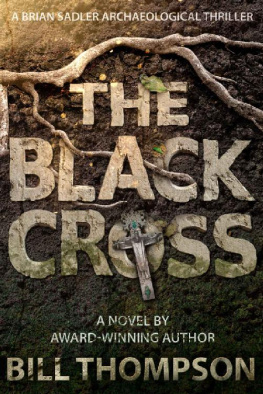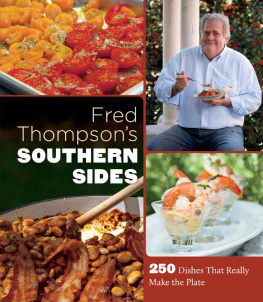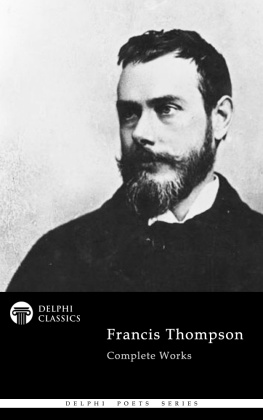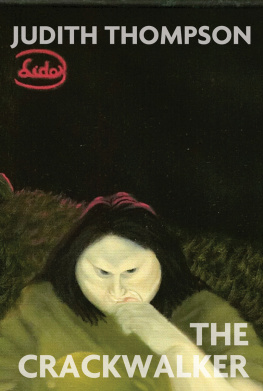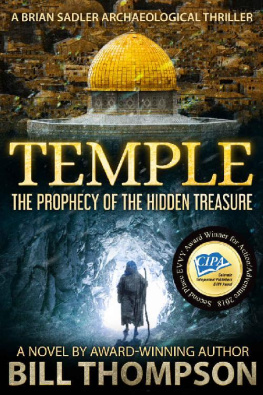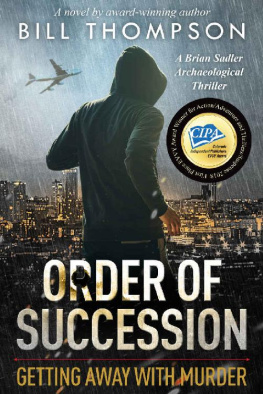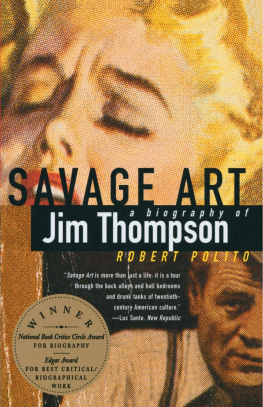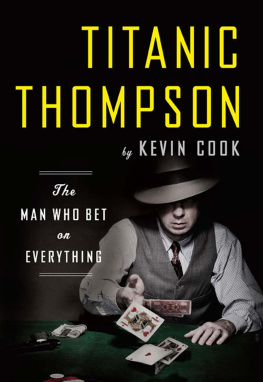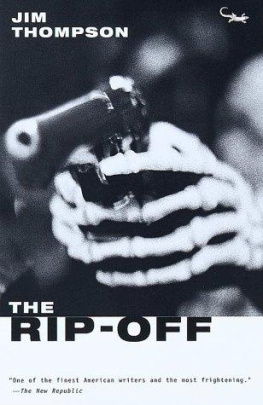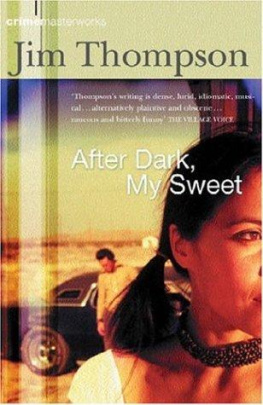Bill Thompson [Thompson - The Black Cross
Here you can read online Bill Thompson [Thompson - The Black Cross full text of the book (entire story) in english for free. Download pdf and epub, get meaning, cover and reviews about this ebook. year: 2017, publisher: Ascendente Books, genre: Detective and thriller. Description of the work, (preface) as well as reviews are available. Best literature library LitArk.com created for fans of good reading and offers a wide selection of genres:
Romance novel
Science fiction
Adventure
Detective
Science
History
Home and family
Prose
Art
Politics
Computer
Non-fiction
Religion
Business
Children
Humor
Choose a favorite category and find really read worthwhile books. Enjoy immersion in the world of imagination, feel the emotions of the characters or learn something new for yourself, make an fascinating discovery.
- Book:The Black Cross
- Author:
- Publisher:Ascendente Books
- Genre:
- Year:2017
- Rating:5 / 5
- Favourites:Add to favourites
- Your mark:
- 100
- 1
- 2
- 3
- 4
- 5
The Black Cross: summary, description and annotation
We offer to read an annotation, description, summary or preface (depends on what the author of the book "The Black Cross" wrote himself). If you haven't found the necessary information about the book — write in the comments, we will try to find it.
Bill Thompson [Thompson: author's other books
Who wrote The Black Cross? Find out the surname, the name of the author of the book and a list of all author's works by series.
The Black Cross — read online for free the complete book (whole text) full work
Below is the text of the book, divided by pages. System saving the place of the last page read, allows you to conveniently read the book "The Black Cross" online for free, without having to search again every time where you left off. Put a bookmark, and you can go to the page where you finished reading at any time.
Font size:
Interval:
Bookmark:
THE BLACK CROSS
Bill Thompson
Published by
Ascendente Books
Dallas, Texas
This is a work of fiction. The events and characters described herein are imaginary and any reference to specific places or living persons is incidental. The opinions expressed in this manuscript are solely the opinions of the author. The author has represented and warranted full ownership and/or legal rights to publish all the materials in this book.
The Outcasts
All Rights Reserved
Copyright 2017
V.1.0
This book may not be reproduced, transmitted or stored in whole or in part by any means, including graphic, electronic or mechanical without the express written consent of the author except in the case of brief quotations embodied in critical articles and reviews.
Published by Ascendente Books
ISBN 978-0996467193
Printed in the United States of America
Books by Bill Thompson
Brian Sadler Archaeological Mysteries
THE BETHLEHEM SCROLL
ANCIENT: A SEARCH FOR THE LOST CITY
OF THE MAYAS
THE STRANGEST THING
THE BONES IN THE PIT
ORDER OF SUCCESSION
THE BLACK CROSS
Apocalyptic Fiction
THE OUTCASTS
The Crypt Trilogy
THE RELIC OF THE KING
THE CRYPT OF THE ANCIENTS
GHOST TRAIN
Middle Grade Fiction
THE LEGEND OF GUNNERS COVE
DEDICATION
I wouldnt have finished this book if my friend and fellow author Russell Blake hadnt given me a nudge in the right direction when I hit a roadblock halfway through.
By the way, if you like nonstop action and excitement, check out his books. Hes written a lot and theyre all very entertaining.
This ones for you, Russell, way down there in Baja California. I owe you a margarita.
ACKNOWLEDGEMENTS
Thanks to my faithful beta readers whose comments provide valuable insight and guidance.
My wife Margie listens to every word out loud. Thats a huge help for me in the proofing process and I appreciate it.
Nancy Shew, thanks for your help in the French translations.
AUTHORS NOTE:
Queen Isabella I of Spain
was Christopher Columbuss sponsor.
In historical records she is called Isabel, Isabela or Isabella.
To avoid confusion, Ive used only one.
FOREWORD
Although this book is fiction, it is crafted around an ancient and mysterious culture that thrives today.
I want to advise my readers that I have lived in New Orleans and I believe in voodoo.
Voodoo is real.
It's not real for the college kids who breeze in for the weekend to drink until they drop, the girls who pull up their T-shirts, giving strangers a good look at their naked breasts in exchange for a ten-cent pair of beads, or the boys who end the evening passed out in a nasty gutter on Bourbon Street. It's not real for the adults who come to attend jazz festivals, to enjoy the sinful pleasures of Mardi Gras and to sing along to the dueling pianos at Pat O'Brien's, and who drop hundred-dollar bills at restaurants serving wonderful martinis and excellent Cajun dishes.
Those people - the transient visitor population - laugh about voodoo. They fly in for a few days and then go back home again with stories about the crazy things that happened in the Big Easy. They visit Marie Laveau's tomb in St. Louis Cemetery No. 1 and mark Xs on it. They take haunted city tours or visit plantation homes along the river that are reputedly still occupied by the ghosts of Civil War heroes and villains. They buy voodoo dolls in the souvenir shops from a woman called Madam Zombie and laugh about it.
It's a different story for the people whose families have always been here. Many trace their heritages back to the time soon after Jean-Baptiste Le Moyne de Bienville founded Nouvelle Orleans in 1718. These residents have a healthy respect for voodoo because they know it's real.
Two hundred years ago, the streets of the Garden District were laid out and stately antebellum homes were constructed for prosperous Americans who came to New Orleans to take advantage of the opportunities in this bustling port city. These gentlemen and ladies chose not to live in the French Quarter with the Creoles, whose background, heritage and culture were so dramatically different. Those people came mostly from the Caribbean and many were from Haiti.
The families who owned the mansions along St. Charles Avenue - cotton merchants, ship owners, bankers and attorneys - were afraid of the Creoles, even though they employed them as house workers. Over evening cocktails and cigars, the men of the house would have shared rumors about the strange families - the Laveaus, for instance - who lived at the edge of the Quarter on St. Ann or Rampart Streets, and who were rumored to practice the dark arts in Congo Square on Sundays.
The servants who worked for the rich folks were given that one day off each week, and Congo Square was where they congregated. For them it was a social event that allowed them a bit of freedom from the drudgery of their lives. They visited, they sang, they talked and they practiced a true, living religion. It had parts of Catholicism mixed in with the use of amulets and charms for various purposes. Some people prayed for healing while others invoked harm on someone who had wronged them. This was what voodoo was about.
Today many of the stately Garden District mansions have been restored and are occupied by descendants of the families who built them. It may be the twenty-first century, but these people know the stories too. Many of them think voodoo is no laughing matter.
I have lived in New Orleans. I have spoken to people who know voodoo exists because of what they have personally witnessed. In many cases their stories are stranger than fiction. Because of what they experienced, I believe it too.
Bill Thompson
CHAPTER ONE
The wizened crone shuffled down Chartres Street, oblivious to the rain that had fallen off and on all afternoon. At her age it would have been good to stay at home today, but the Saturday ritual that had occurred for decades couldn't be changed.
She could hear blaring music from the bands on Canal Street. Mardi Gras was just three days away and until the last hour the weather gods had smiled on the Krewe of Iris. The Krewe's long procession of colorful floats, marching drill teams and high school bands had rumbled down St. Charles from Napoleon Avenue to Canal Street in a drizzle, but the real storm had held off and the parade was almost over when the skies finally opened. A huge New Orleans fire truck, the last vehicle in the two-mile-long procession, had just turned onto Canal for the final few blocks of the route when the torrential rains began. Once that happened, the party was over. Teenaged band members broke rank and scurried toward school busses lined up along Tchoupitoulas Street. Costumed dancers who had marched for miles disappeared in seconds. The masked riders on the floats heaved the last of their beads and doubloons over the side to the few drenched, mostly drunk tourists on the street who still yelled, "Throw me somethin', Mister!" The Iris Krewe members were all female. They sought shelter down inside the huge floats, sharing swigs from pint whisky bottles to ward off the dampness seeping through their wet costumes and laughing about the crazies who showed up for Carnival every year.
Over a half-million tourists and locals had lined the parade route and now many were walking back into the French Quarter along its crowded, narrow streets. The rain intensified, enticing many of them into the first watering hole they encountered.
The old lady passed Jackson Square. Its fences usually were filled with street art, but today they were empty. Across the street, Caf du Monde looked warm and inviting and even from this distance she could smell the intoxicating aroma of the strong chicory coffee for which they were famous. People were ducking into the coffee shop in droves - no sane, sober person would stay out in this deluge. No one, that is, except for intoxicated revelers oblivious to the rain and old Justine hobbling along the sidewalk.
Next pageFont size:
Interval:
Bookmark:
Similar books «The Black Cross»
Look at similar books to The Black Cross. We have selected literature similar in name and meaning in the hope of providing readers with more options to find new, interesting, not yet read works.
Discussion, reviews of the book The Black Cross and just readers' own opinions. Leave your comments, write what you think about the work, its meaning or the main characters. Specify what exactly you liked and what you didn't like, and why you think so.

